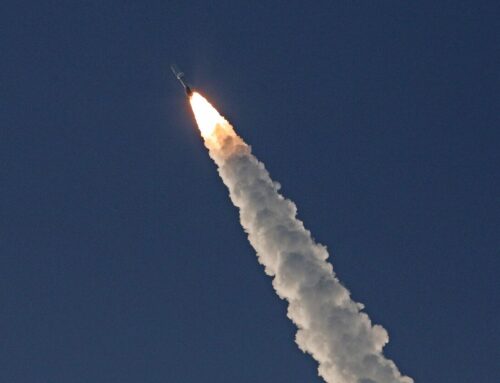Apple leads Magnificent 7 stock drop amid Trump tariffs
April 3, 2025
In This Story
Apple (AAPL-7.95%) shares were down by 8.4% at the market open on Thursday, leading the decline of Magnificent 7 stocks after President Donald Trump announced “reciprocal tariffs” following the market close on Wednesday.
During pre-market trading on Thursday, Apple was down by 8.2%, Amazon (AMZN-7.29%) was down by 6.7%, Meta (META-5.79%) was down by 6.6%, Nvidia (NVDA-6.50%) was down by 6.2%, Tesla (TSLA-5.12%) was down by 6.2%, Alphabet (GOOGL-3.34%) was down by 3.8%, and Microsoft (MSFT-1.85%) was down by 1.9%.
Meanwhile, S&P 500, Nasdaq 100, and Dow Jones Industrial Average futures all pointed to a lower opening on Thursday morning.
Later in the morning, Apple fell further and was down by almost 9%, while Meta and Amazon were down by around 7.6%, Tesla was down by 5%, Nvidia was down by 4.9%, Alphabet was down by 3.3%, and Microsoft was down by almost 2%.
The Trump administration’s tariffs are being applied on a country-by-country basis, and are calculated by combining the rate of tariffs, non-monetary barriers, “and other forms of cheating.” Trump said the U.S. will charge other countries “approximately half” of their charges.
“April, 2, 2025 will forever be remembered as the day American industry was reborn, the day America’s destiny was reclaimed, and the day that we began to make America wealthy again,” Trump said on Wednesday, adding that his tariffs are the “declaration of economic independence.”
Baseline 10% tariffs are expected to go into effect on Saturday at 12:01 a.m. ET, while reciprocal levies are set to be effective on April 9 at 12:01 a.m. ET.
Jefferies (JEF-11.45%) analysts said in a note on Thursday that the Trump administration’s 54% tariffs on China and 26% tariffs on India “caused a selloff on the Apple supply chain.” The analysts said it is currently unclear if Apple will be exempted from the tariffs as it was during Trump’s first administration in 2018, and that the company’s plan to invest $500 billion in the U.S. over the next four years could “help it get exemption.”
“The simple thought is likely that Apple’s products will be subject to this tariff, and thus demand will get hit and thus the supply chain will suffer,” Jefferies analysts said.
“[I]n the worst case,” the analysts estimated that if Apple’s iPhone imports are subject to the 54% tariff on China and the company absorbs the cost to avoid a negative impact on sales volume, its full year net profit could be reduced by 14%.
“It is possible for AAPL to raise price and pass on some tariff burden to high-end consumers without affecting volume too much (upside to our forecast), but that may be offset by the fact that some non-iPhone products would also create additional [negative] impact on AAPL’s earnings,” Jefferies analysts said.
However, the analysts said that even if Apple is exempted from the reciprocal tariffs, “it will need to accelerate its supply chain diversification efforts, and thus needs to pay its suppliers better and give more share to those who could help AAPL achieve this objective.”
Search
RECENT PRESS RELEASES
Related Post




